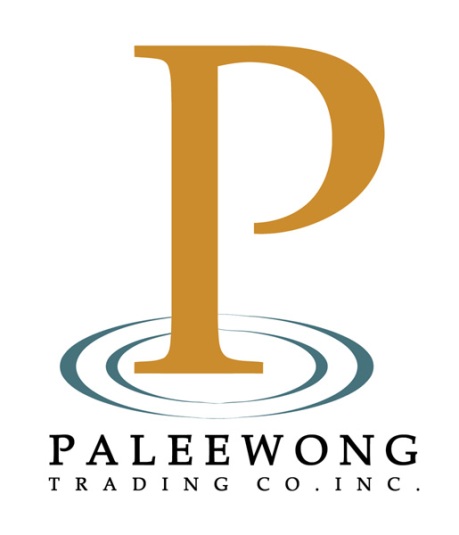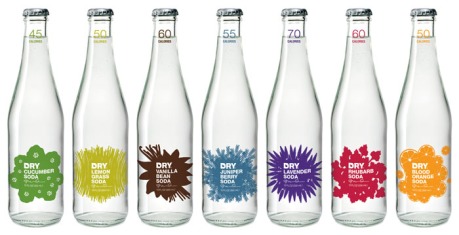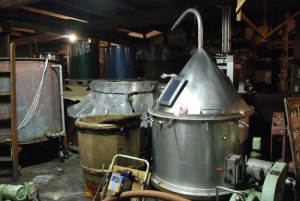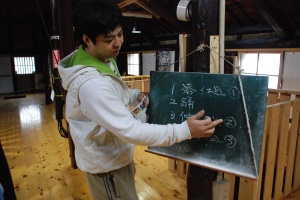As of now, we’ll be updating all our blogs here: www.craftdivision.wordpress.com. come see what we’re doing!
Tsukinowa Brewery
Iwate Prefecture
http://www.tsukinowa-iwate.com
Vitals:
incorporated: 1886, 5th generation brewer
annual production: 100k L
varietals: ~ 9
employees: 7
distribution: 50% in Iwate, 25% Hokkaido, 20% Tokyo
breweries in same prefecture: 27
—
“Hurry up and finish your beer, it’s a promise you’ll be drinking sake from here on in,” says President Mr. Daizo Yokosawa. And did we ever. Toshi-san of Sake Story, myself along with Mr President Daizo and his daughter Hiroko-san (current head brew master), went out after the brewery tour to chit chat over some home-style sushi and drinks. Here’s what I learned: o-ki-na-wa-ri means one more please in a way that’s polite to the merchant. I’m not sure how polite it is, but the merchant was definitely smiling and friendly after the ten rounds of sake we ordered.
Mr. President Daizo-san says sake is now centered on flavors whereas before it was just about high and low rankings hence their mainstay classic honjozo Tsukinowa Kinen (Blue Hue) and daiginjo Yoi-no-tsuki (Midnight Moon), of which he passed on the brewing techniques to Hiroko-san.
In sake brewing, the koji mold that initially breaks down starches of the rice into fermentable sugars is crucial. Brewers train the koji by fluctuating temperatures so that the koji starts and stops constantly building up their strength and numbers for when they’re dumped in the mash. The standard amount of time it takes to cultivate koji is about 2-3 days, but at Tsukinowa the process takes about 16 days. Hiroko-san says from being in a constant struggling motion for a longer period of time is what gives her sakes the layers and complexity they seek.
Responding to the changing landscape of sake, Hiroko-san created Mochiko (Rice Baby), Tsukinowa (Moon Ring) and other varietals to the brewery portfolio honing in on the complexities and various nuances sake can carry.
Mochiko (Rice Baby) is very unconventional in that mochi rice (aka sticky rice) is used to make the sake. Mochi is typically pounded to make rice cakes as it is a stickier, plumper rice grain, but when brewed for sake it imparts a buttery, viscous mouthfeel that’s just slightly sweet.
Another response to the outgoing trends of traditional sake brewing is what they do with the leftover rice lees (known as kasu) after the fermented rice mash has been pressed for sake. Hiroko-san says less people are buying kasu, traditionally used in rice cakes or soup broths, so she’s found another use for them- she’s using it to distill shochu.
It took Hiroko-san 3 years of experimentation before releasing small batches of the breweries first shochu.
Pictured here is a still used at Tsukinowa to distill their small batch shochu. As Hiroko-san experimented, the size of the still was not enough to withstand her use, and the still started to get burnt, which turned out to be a pleasant accident.
Flavors of heavy dark chocolate were a direct result of the stills over usage, blending with the strong dry finish of the shochu very nicely. Clocking in at 35% abv, this shochu packs quite a punch while also retaining a dark toasty flavor relieving it from the need to mix. Back to the basics, drink it simply on the rocks.
Aside from making actual shochu, Hiroko-san also brought back the practice of using it in place of distillers alcohol to bring out aromas in sakes that call for it. And there’s no stop in her calling she discovered 13 years ago.
Hiroko-san lived in Tokyo for a while surrounded by advancements of metropolis and felt culture and tradition fading into irrelevancy. During university she was only exposed to mass sake which she didn’t like very much, but was at a bar one night when the bartender suggested a “good” sake which happened to be the Yo-noi-tsuki her father brews. The epiphany hit and she moved back to learn the tradition in 1997.
Today, she’s got a young team of about 7 people helping her brew, all averaging the age of 25. A very young team compared to most breweries across Japan, but she feels that sake needs a younger perspective to bring out innovations of the sake brewing tradition.
Tsukinowa Brewery sakes: Yoi-no-tsuki (Midnight Moon), Tsukinowa Kinen (Blue Hue), and Mochiko (Rice Baby) are all available for purchase at Bowery and Vine in NYC and select restaurants.
Distributed in New York City by Craft Division at Paleewong Trading Co.
Housui Brewery
Tokushima Prefecture
http://www.housui.com
Vitals:
incorporated: 1913, 4th generation brewer
annual production: 145k L
varietals: ~20
employees: 15
distribution: 85% in Tokushima and neighboring Kagawa, 15% rest of Japan and elsewhere
breweries in same prefecture: 10 actively brewing
—
Located on the island of Shikoku off the southern coast of Japan, owner and proprietor of Housui Brewery, Mr. Yasuo Baba, introduces us to some uncommon foods and great sake, “most Japanese don’t even get to visit Shikoku,” he says.
We ducked in a little izakaya near the Awa Ikeda station off the JR Line and our conversation started over a customary glass of beer, a bowl of cockles and some downright hearty honjozo.
Mr. Yasuo Baba, 51, listens to a lot of Sara Brightman nowadays, though is a punk rocker at heart. Some of his music favorites include the Stranglers, Yes (the early prog years), David Bowie, Elvis Costello, and like his taste for progressive rock bands Mr. Baba-san set to create an edge in his sakes, preferring even the softer styles to be hearty and full of character.
Only having had the tokubetsu junmai previously, the underlying characteristics of Housui sakes become apparent after sipping the warmed honjozo in front of us.
There’s a distinct taste that runs through his 20 or so sake varietals, which Baba-san says is much attributed to the water he uses. Spring water running down from the mountains surrounding the island meets the hard water from the adjacent Japan Sea creating a naturally balanced water base rich in minerality.
Mr. Baba-san is continually worried about water contamination as development encroaches the island. “Even the slightest advancements like hospitals and factories create the possibility,” he says, “but thankfully nothing noticeable has changed in the water so far.”
Apart from the water, Mr Baba-san says the integrity of his sakes also comes from the brew master’s focus and attention. “My job is to create the environment for a brew master to fully concentrate on his work,” says Baba-san.
As an employee who started on the bottling line, Mr. Yasuharu Takeuchi worked at the brewery for 4 years before delving into the brewing process. Now almost 20 years later Takeuchi-san is the head brew master at Housi making sure the koji gets cultivated and the yeast become able.
Takeuchi-san explains that since they want that heartier sake the yeast and koji need to be stronger and they do so by temperature control making the yeast work and struggle, building their muscles so to say for when they’re needed in the “moto” (rice mash) to start the fermentation process with that commanding edge throughout. Progressive and hard hitting, like the music he savors.
Housui Brewery’s Tokubetsu Junmai is currently available for purchase at Sakaya in New York City.
Distributed in NYC by Craft Division at Paleewong Trading Co.
Beerlao will be here to get sexy nerds drunk! Hosted by the Asian American Writers Workshop, we’re happy to lubricate any sticky fingers at this fundraiser for the Page Turner event series happening this weekend.
From the Asian American Writers workshop site:
Featuring drinks, music, dancing and guest appearances by Tao Lin, Richard Price, Lorraine Adams, Nami Mun, Karan Mahajan, and others.
Saturday, November 6, 8-11pm
Chambers Fine Arts, 522 West 19th Street, NY, NY
$40 entry / $60 for two
Sorry, pal. If you’re a writer or if you’re Asian American, odds are you were once a nerd. Don’t be ashamed–you’re all grown-up now and besides, thanks to Andre 3000, Tina Fey, and Google, nerd chic is in. So, throw on your most festive attire and stumble over to the swankiest Asian Art gallery in New York, where we’ll have drinks and dancing. You can support your favorite nonprofit by gazing shyly at the cute red-haired girl across the room, getting drunk in the presence of writers like Tao Lin, Richard Price, Lorraine Adams, Nami Mun, and Karan Mahajan, and dance awkwardly in the corner with your favorite sexy nerd. Featuring jazz legend Fred Ho as musical guest. You bring the sexy, we’ll bring the nerd. Admission comes with free sexy nerd glasses.









